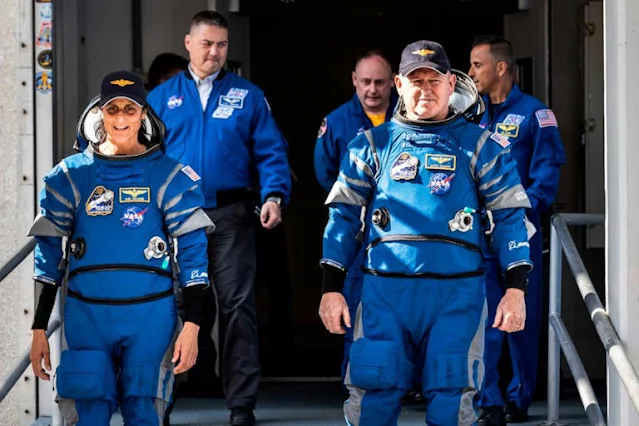Boeing's maiden crewed space flight had to be called off due to a valve malfunction on the spacecraft’s rocket, as announced by the United Launch Alliance on Monday.
The Starliner Crew Flight Test, a joint venture with NASA's Commercial Crew Program, was slated to take off from Space Launch Complex-41 atop an Atlas V rocket at Cape Canaveral Space Force Station in Florida at 10:34 p.m. ET before being halted. ULA Launch Director Tom Heter III conveyed to the launch team that operations would not proceed that night," the United Launch Alliance reported in an update on X (formerly Twitter) Monday evening.
The next potential launch window for Starliner is tomorrow at 10:11 p.m. ET, although it remains uncertain if the launch will occur at that time. The Starliner is designed to accommodate a seven-person crew, but the "test drive" launch was to carry only NASA astronauts Barry Wilmore, 61, a former U.S. Navy captain commanding the flight, and Sunita Williams, 58, a former Navy service member piloting the flight. Prior to the delay, the capsule was scheduled to reach the ISS in 26 hours. Wilmore and Williams were expected to stay at the station for nearly a week before returning to Earth aboard the Starliner.
Monday would have marked the inaugural crewed flight for Boeing's Starliner, which has encountered numerous setbacks and delays in its journey compared to SpaceX's Crew Dragon, also part of NASA's Commercial Crew Program. During the Starliner's initial test launch in 2019, the unpiloted capsule failed to reach the space station due to a software error that prevented the capsule's flight computer from loading the correct launch time, according to the aerospace company at the time.
The second official launch, also unpiloted, took place in May 2022 and was successful, with the Starliner reaching and docking at the space station before safely returning and landing back on Earth. Despite the success, crews identified issues with the capsule's parachute system and noted that adhesive tape used to cover wiring on the spacecraft could be flammable, according to Boeing.
During a press conference last week, Mark Nappi, Boeing vice president and program manager of the Commercial Crew Program, stated, "We are now at a state where we are ready to perform the test flight." "I've never felt more prepared for any mission I've ever participated in," he said.

